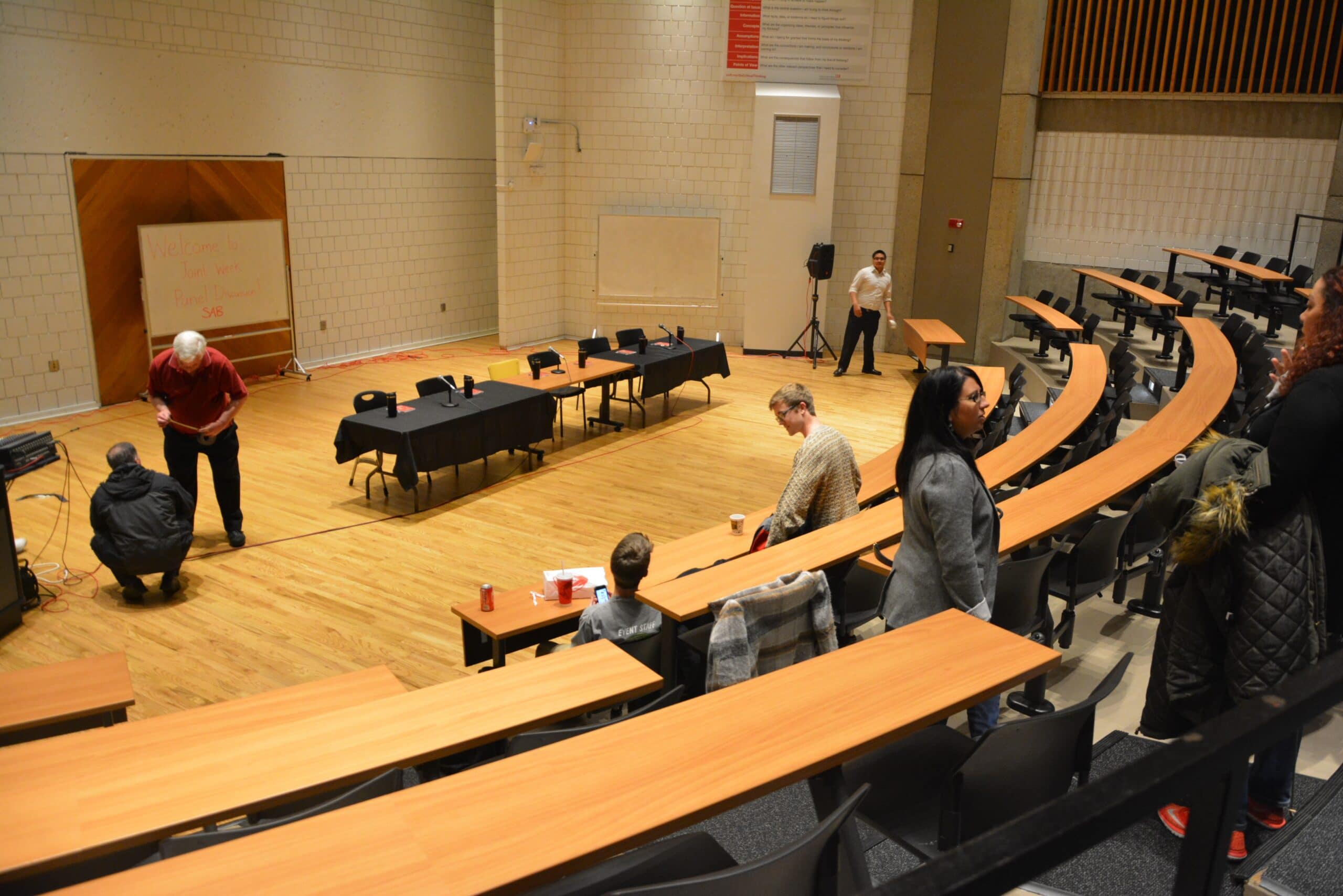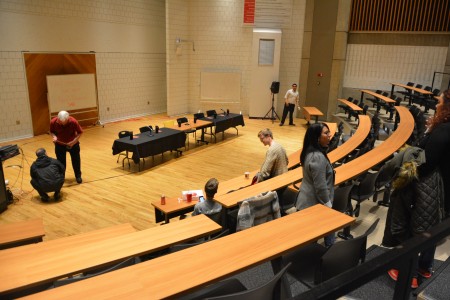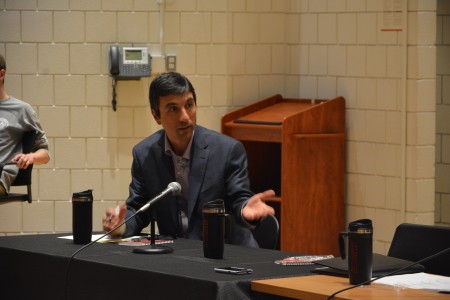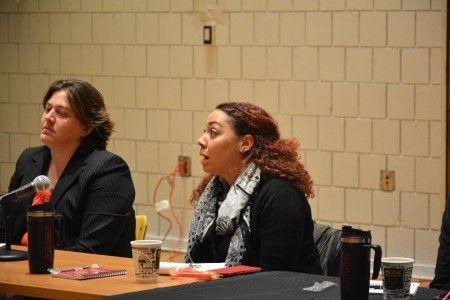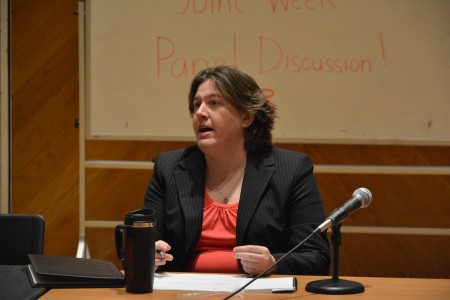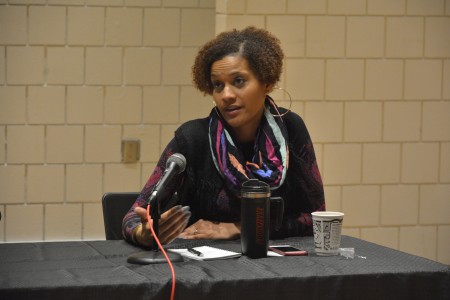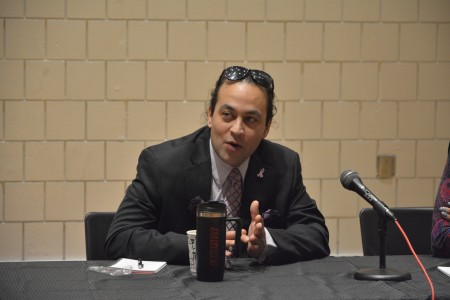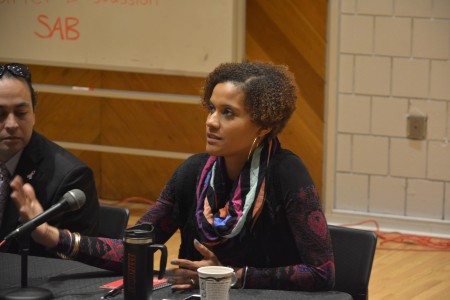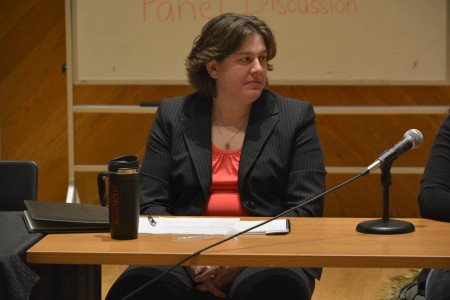By Aaron Holder–
U of L SAB welcomed four speakers to participate in a panel discussion revolving around the issues of mass incarceration, racism and the war on drugs last week.
The panel ended Joint Week, a series of SAB events and lectures centered on questions raised by these issues.
The panel first dissected the war on drugs, examining its beginnings, surrounding politics and finally its implications. Criminal justice professor Cherie Dawson-Edwards first spoke.
”In my lens, the war on drugs could’ve started in 1937 with the Marijuana Tax Act,” said Dawson-Edwards. “But if we want to bring it to contemporary times, I would say the Controlled Substances Act in the 70s began to schedule drugs differently than they had been scheduled before.”
Dawson-Edwards illustrated the role the acts have played in racial injustice. Racial profiling, according to Dawson-Edwards, “dates back to a profile that they used to use in Florida in 1974, which was a criminal profile. It evolved into a drug courier profile, and then it evolved into what we refer to now as a racial profile.” Racial profiling, she said, is a “corollary phenomenon to the war on drugs. I think about the modern day war on drugs to coincide with the implementation of strategies to target certain people.”
“I think that we are now seeing the consequences of locking up so many people on behalf of the War on Drugs.” said professor Elizabeth Jones She also pointed to how police departments, under the loosening of the Fourth Amendment’s meaning as to what constitutes as a “lawful” search and seizure, police departments then began targeting poor communities of color.
“The amount of time someone gets for drugs has created the huge backlog of people in the justice system,” said Vanessa Kennedy, a corrections officer on the panel.
How should we to approach these problems in a way that facilitates change? One way would be to look at all these things from a distinctly human perspective.
“When we think about the criminal justice system and reform, we have to put a human face on it.” said panelist Bonifacio Flaco Aleman, a social justice campaign organizer and director at Flacozbrain Solutions. “These people have face, and sometimes they’re nice and pretty. Sometimes they’re not.”
- The auditorium is filled by the audience. Photo by Rachel Knue.
- The discussion was led and directed by Avery Kolers.Photo by Rachel Knue.
- Elizabeth Jones shares a thought. The discussion panel touched on topics like mass incarceration, race and the war on drugs .Photo by Rachel Knue.
- Each of the panel members shared their opinions and pulled from personal experience. Pictured is Bonifacio Aleman. Photo by Rachel Knue.
- Elizabeth Jones speaks to the crowd. She is a professor of Pan-African Studies. Photo by Rachel Knue.
- Vanessa Kennedy, a correctional facility officer, joined the panel and shared her insights from the prison system. Photo by Rachel Knue.
- Cherie Dawson speaks to the assembly. Photo by Rachel Knue.
- Bonifacio Aleman addressing the gathering. Photo by Rachel Knue.
- Each attendee gave insightful responses to the thoughts and questions from the crowd. Pictured is Professor Cherie Dawson. Photo by Rachel Knue.
- Vanessa Kennedy listens to the others after speaking. Photo by Rachel Knue.
- The group took questions from the crowd and each addressed them individually. Photo by Rachel Knue.
Photos by Rachel Knue / The Louisville Cardinal

